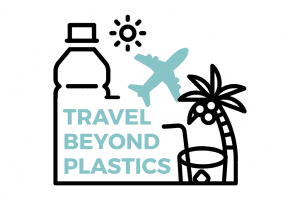Skift Take
As the travel industry slowly emerges from the pandemic, it will soon have to re-engage with dropping single-use plastics because regulators aren't waiting until the travel sector's profitability recovers to tighten laws.
 Travel Beyond Plastics is a groundbreaking new Skift series about the travel industry’s addiction to plastics and what happens when companies and travelers try to kick this unsustainable habit.
Travel Beyond Plastics is a groundbreaking new Skift series about the travel industry’s addiction to plastics and what happens when companies and travelers try to kick this unsustainable habit.
A major industry report has endorsed significant changes in how the travel sector works with single-use plastics, sending a strong signal that airlines, hotels, cruise lines, and other companies need to worry more about the environmental impact of items like shampoo bottles, food utensils, and drinking straws and stay ahead of a coming regulatory crackdown by governments worldwide.
The World Travel and Tourism Council (WTTC) and the United Nations Environment Program (UNEP) published a report this week that recommended an overhaul of the industry’s use of single-use plastics with specific recommendations.
The report comes against a backdrop of industry ferment. The European Union and more than 120 countries have taken actions to curb the use of single-use plastics.
“Consumers like to talk about sustainability and ESG [environment, social and governance concerns] but they’re not willing to pay a higher price for it,” said Tyler Morse, chairman and CEO of hotel development and management firm MCR, during the virtual Skift Hospitality & Marketing Summit on June 16.
But progress still needs to be made on adopting alternatives to plastic that aren’t frustrating travelers.
“Everyone’s outlawing plastic straws,” Morse said. “But paper straws don’t work after you sip on it five times, when they disintegrate in your mouth. The answer unequivocally is avocado pit straws that look and feel just like plastic straws but they cost nine times what a plastic straw does.”
The report studied data voluntarily submitted by 69 hotels worldwide, with a heavy representation from all-inclusive resorts. The worst offenders were water bottles, making up to 32 percent by weight. Next up were disposable toiletries (31 percent by weight) and plastic bags and liners.
There were geographic variations. In North America and Europe, plastic bags tend to be roughly twice the weight as those in other parts of the world, often doubling the waste.
The report’s answer to this question is partly that travel companies should try to reduce the use of these items rather than seek replacements “wherever possible.”
The report’s main offering is a few “decision trees” to help travel sector executives think about decisions at all stages in the process. Reviewing operating procedures and changing criteria for purchasing in an organization are some examples.
The report broadly makes for grim reading in its coverage of the impacts of the tourism sector single-use on the environment. But step-by-step, progress is being made. In April, ANA (Air Nippon Airways) said it had become the first airline in Japan to switch from plastic to plant-derived bagasse material (the waste fiber created from pressing sugarcane) for in-flight meal containers on its overseas economy-class flights.
ANA said the adoption of these trays would “reduce the amount of disposable plastic used by approximately 30 percent — or approximately 317 tons per year.” In 2020, ANA introduced plastic-free cutlery and straws on many flights.
IHG Hotels & Resorts and Marriott International are banning plastic straws, switching from miniature toiletries to residential-sized amenities, and replacing bottled water with refillable ones. Accor Group has said it will stop using guest-related single-use plastic items in about 5,000 hotels in 110 countries before 2023.
The WTTC and UNEP report on single-use plastics in travel is here.
The Daily Newsletter
Our daily coverage of the global travel industry. Written by editors and analysts from across Skift’s brands.
Have a confidential tip for Skift? Get in touch
Tags: climate change, environment, plastics, reports, single use plastics, sustainability, travel beyond plastics, wttc
Photo credit: Multi-use toiletries at the Moxy Hotel in New York City. Andrea Davis / Unsplash
